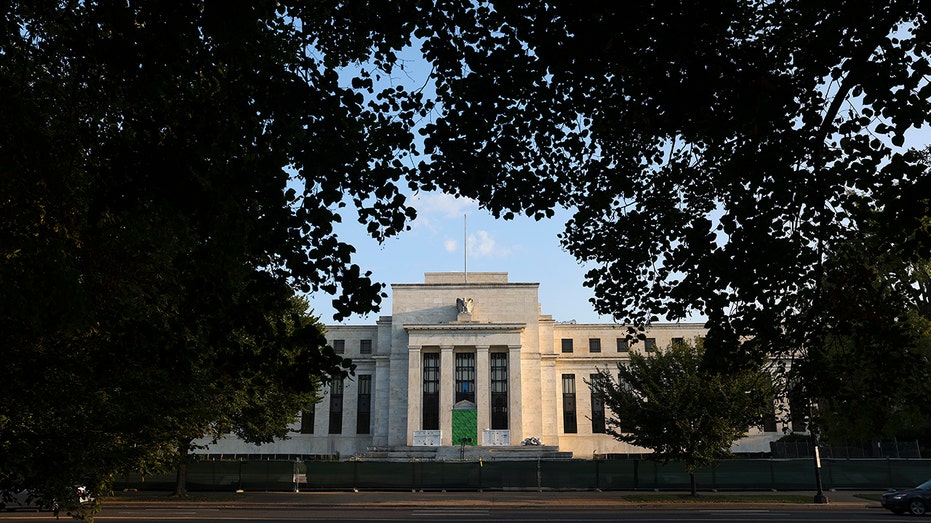Federal Reserve Chair Jerome Powell said Tuesday that policymakers have been encouraged by recent data that suggests inflation is receding, and that continued progress would strengthen the case for an interest rate cut.
“Incoming data for the first quarter of this year did not support such greater confidence. The most recent inflation readings, however, have shown some modest further progress, and more good data would strengthen our confidence that inflation is moving sustainably toward 2 percent,” Powell said in remarks prepared for testimony before the Senate Banking Committee.
The Fed chief is on Capitol Hill for the first of two days of his semi-annual monetary policy testimony. He is slated to appear before the House Financial Services Committee on Wednesday.
FED HOLDS RATES STEADY AT 23-YEAR HIGH, PROJECTS JUST ONE CUT THIS YEAR
Powell also said officials are trying to balance the risks between cutting interest rates too soon, which risks setting off inflation again, or waiting too long to cut rates, which could weigh on the economy and possibly trigger a recession.
“In light of the progress made both in lowering inflation and in cooling the labor market over the past two years, elevated inflation is not the only risk we face,” he said. “Reducing policy restraint too late or too little could unduly weaken economic activity and employment.”
Officials voted at their most recent meeting in May to hold interest rates steady at a range of 5.25% to 5.5%, the highest level since 2001. Although policymakers left the door open to rate cuts later this year in their post-meeting statement, they also stressed the need for “greater confidence” that inflation is coming down before easing policy.
WHY CAN’T YOU FIND A HOUSE FOR SALE?
Since then, there has been some evidence that inflation is starting to ease again. The May personal consumption expenditures index showed that inflation had cooled to 2.6%, from a high of 7.1%. At the same time, core prices – which are more closely watched by the Fed because they strip out volatile measurements like food and energy – also climbed 2.6%, the slowest annual rate since March 2021.

“After a lack of progress toward our 2 percent inflation objective in the early part of this year, the most recent monthly readings have shown modest further progress,” Powell said.
Most investors now expect the Fed to begin cutting rates in September or November and are penciling in just two reductions this year — a dramatic shift from the start of the year, when they anticipated six rate cuts beginning as soon as March.
Powell did little in his Tuesday testimony or subsequent questioning to push back against those expectations.

Higher interest rates tend to create higher rates on consumer and business loans, which then slow the economy by forcing employers to cut back on spending. Higher rates helped push the average rate on 30-year mortgages above 8% for the first time in decades. Borrowing costs for everything from home equity lines of credit, auto loans and credit cards have also spiked.
Powell also faced questions over the state of the U.S. housing market, which has seen prices surge amid an ongoing inventory shortage. Sen. Sherrod Brown, D-Ohio and the chair of the Senate Banking Committee, suggested that the Fed is playing a role in the housing crisis by holding interest rates at a 23-year high, which in turn is keeping mortgage rates elevated.
“For housing supply, the best thing that we can do is get inflation under control so that rates can come back down,” Powell said. “Policies to increase housing supply are really not so much in the hands of the Fed, they’re in the hands of legislatures, state and federal.”
Read the full article here


















